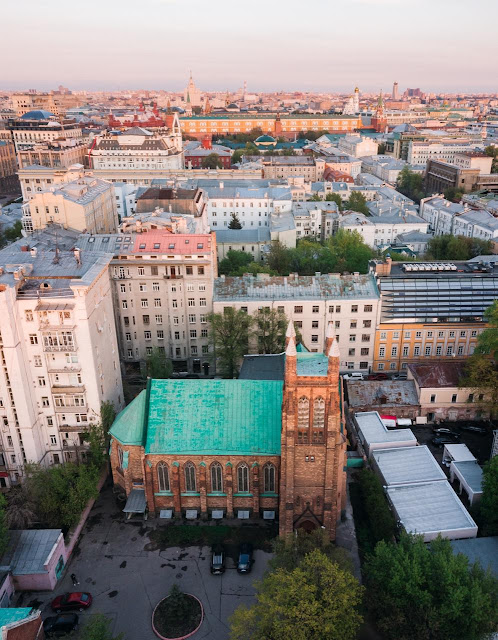On God's power in our powerlessness
St Andrew's Anglican Church in Moscow is situated only 10 minutes walk from the Kremlin, the political and physical centre of power. The Ministries of education, culture and defence are near neighbours. We are in the centre of power and yet we are powerless.
Today, as many of our dear friends have left Russia, and as we nervously wonder whether or when we should leave, we are even more conscious of our powerlessness
Conflict was predicted and we were helpless, unable to do
anything to prevent it. Now that 'special military operations', as they are
called here, have begun, there is nothing that we can do to stop them.
But it is precisely our powerlessness which means that there
are things that we can do. We are gospel people, who serve a crucified but
risen Lord. We are the 'nobodies' of 1 Corinthians 1, and it is our very
powerlessness and insignificance and foolishness that can also be our strength,
if it is handed to God.
First of all we are simply here. We are a community of very
messed up people, but as we gather together to hear the Word of God and to
receive bread and wine, a community of Russians and foreigners gathered
together, centred on and receiving from Jesus Christ, our simple presence can
be a witness of what the world can be like, of the future kingdom.
Secondly, in our powerlessness, we can worship and pray. We
pray for peace. That is far more than just praying for the absence of war. We
praise God for the coming Kingdom, for the hope he has given us. I am struck
that in both Mary's song and Zechariah's song we praise God for what we hope
will happen, as if it already has happened; and we cry out for God, as we pray
and long for the coming of God's Kingdom, when there will be no more 'fake
news', lies, betrayals or violence, and no more fear and death. And it is our
very powerlessness which opens to us our dependence on God and on him doing
wonderful works.
Thirdly, we can still speak truth. There are some things
that we cannot say in Moscow, but we can still preach Jesus Christ crucified
and risen and reigning. We can call people to repentance and give people hope.
In my 30 plus years of ministry, I have never known a time and a place when
people are more hungering for God.
And fourthly we can love and serve our neighbour. We read
the news and feel powerless. Most of us are in no position to solve world
problems or to bring peace. In the job advert for Moscow, it said that the
person appointed could make a difference for world peace. On those grounds I
have been a spectacular failure! But we can make a difference where we are, and
love the actual physical neighbours who God has given us. For some, the
neighbours are Ukrainian refugees. Yesterday I heard from the woman who I ran
our college Christian Union with. For the last 30 plus years, she has been
working with Polish Christians, witnessing and serving mainly among addicts and
street women. She wrote of how her team met a family of homeless Ukrainian
refugees and they are now living in her flat. There are many stories like that.
Our neighbours at St Andrew's in Moscow are different. They are the young
Russian crushed by what has been done in his name, the mother sick with anxiety
for her son who has been sent to Ukraine, the foreign student unsure whether to
leave or how to leave, the person who has been named on the wrong sort of list,
the older person who fears a return to the isolation and economic depression of
the 80s. In our hubris we think that we are somebodies who can save the world -
and we end up paralysed. But it is when we realise our powerlessness, that in
the worlds eyes we are 'nobodies', that we can begin to see the neighbour who
God has given us and learn to serve them
Pray for us, for courage and wisdom and perseverance in faith
and love. And we will pray for you.


Comments
Post a Comment